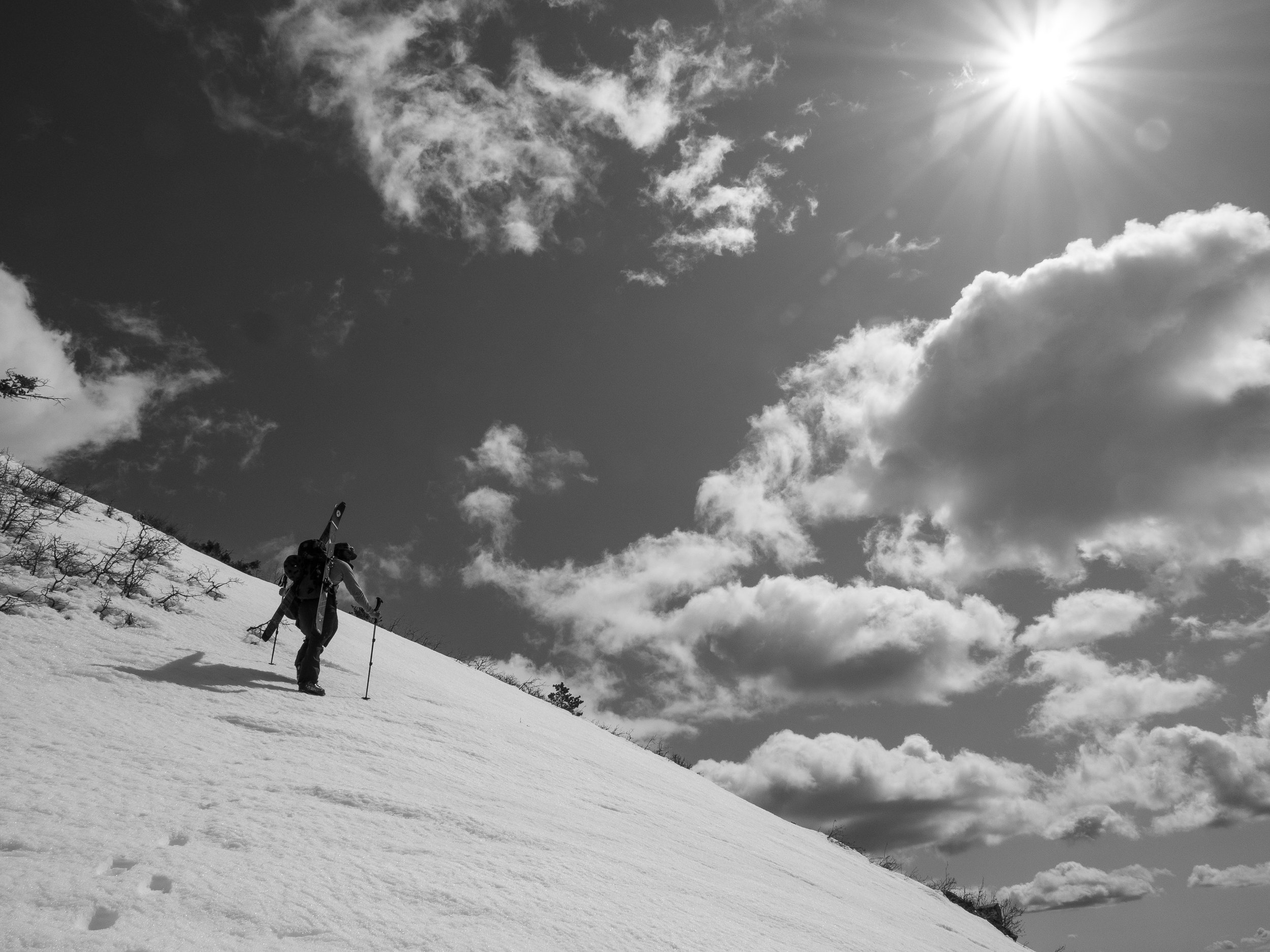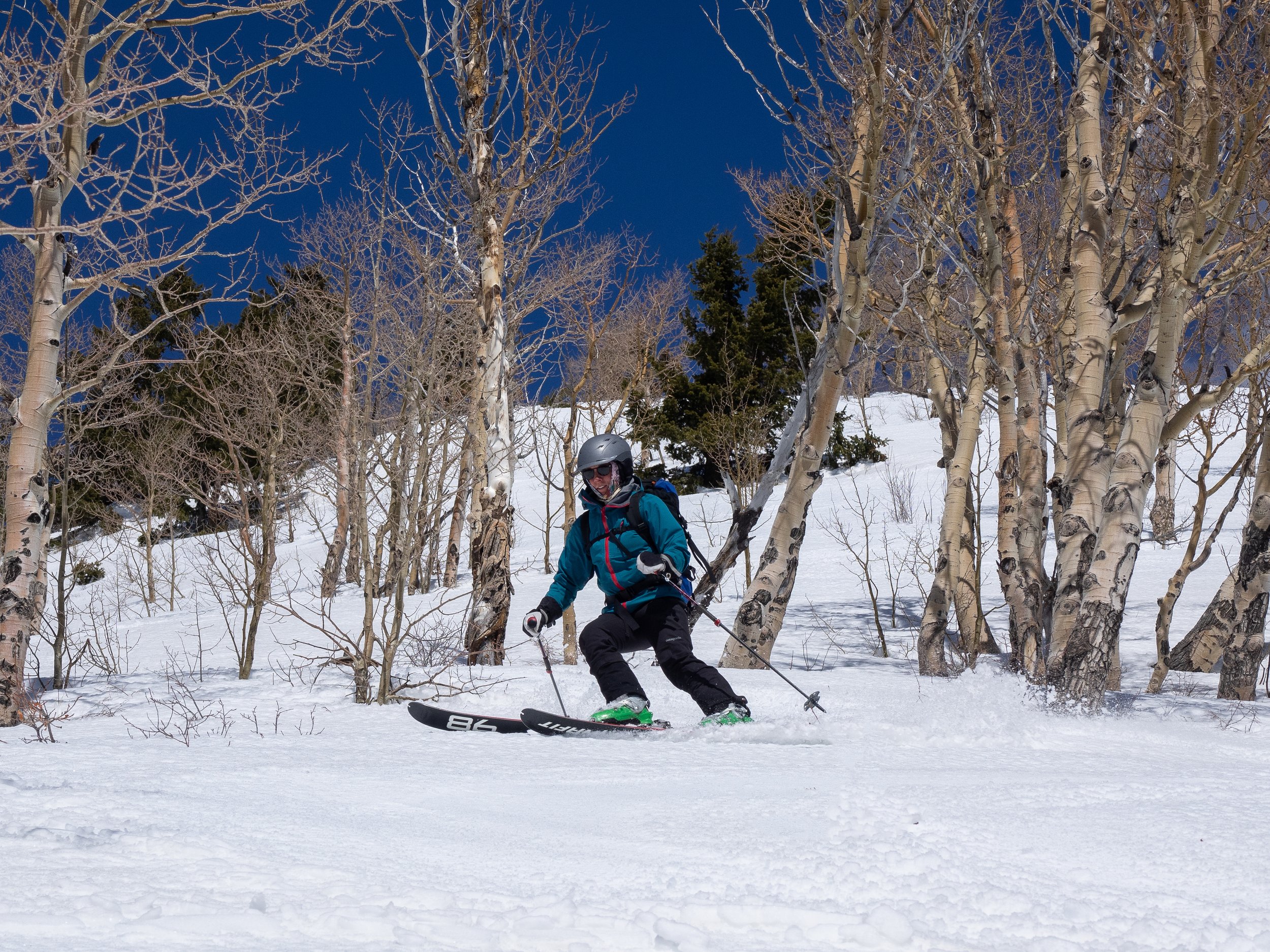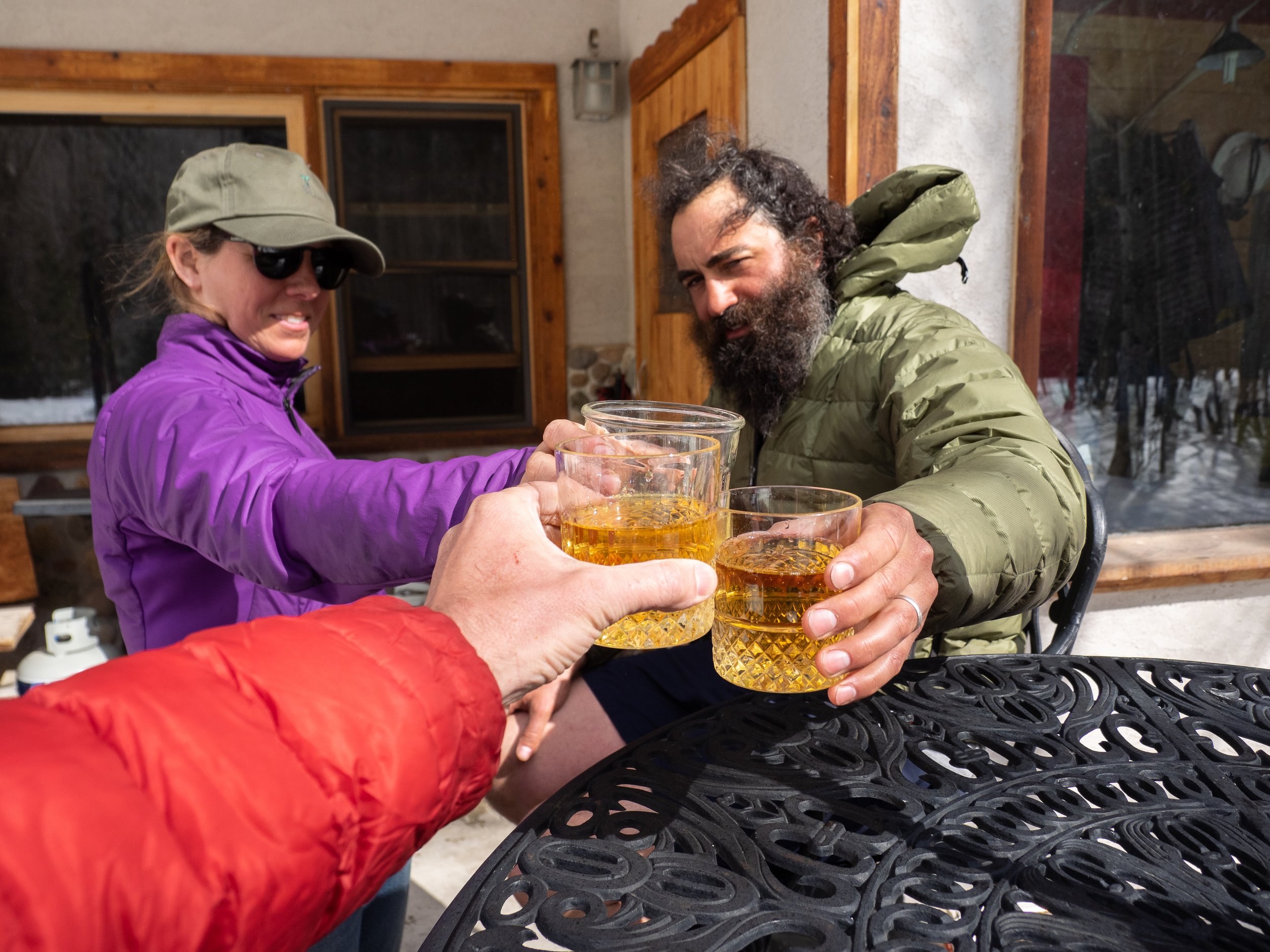Chapter 1 - The Push
The Twenty-Two Project
“I decided that we should not work full time at this shop. It’s more important that we live cheap and that we can ski again.”
At 3 PM on a sunny and warm Monday afternoon, I made my second and final sled pull into what would be my headquarters for the Twenty-Two Project. In my plastic sled were the final items needed to outfit the canvas-walled tent for the weeks ahead…a small wooden table, twin cots, a couple of rugged sleeping pads, two 0 degree down sleeping bags, cast iron frying pan; a small cooler, down booties and a pair of winter boots, two camp chairs, etc. Two days prior, my friends and property owners, Jesse and Ren, helped me stomp out a platform in the snow and construct the tent. After building a make-shift floor out of plywood covered with various rugs and floor coverings, we added the final and defining piece to the glamping puzzle: a wood stove which included a hot water tank. I was going to be camping in style. When told of my idea of climbing and skiing off every peak in my home range, Jesse and Ren were gracious hosts and participants in helping me take on this challenge. Having purchased a beautiful piece of property at the mouth of the canyon which split the range, their place was the perfect basecamp for this adventure.
My “HQ” outfitted for some extended stays.
From its conception, there are numerous reasons why the Twenty-Two project was never started…years of low snow; high avalanche danger; lack of strong partners, etc. Perhaps the greatest deterrent to its completion was time—a perceived lack thereof. In a typical Colorado winter, the best time to climb and ski off big mountains is during the spring once the usual weak layers in our snowpack disappear through the constant melt/freeze cycle that the warmer weather and longer days of spring bring to the snow. The snowpack then becomes stable and our usual mid-winter slab avalanche issues abate. Our primary avalanche concern for the spring becomes wet slides when the snow surface is overheated late in the day through melt and consequently, gets weak. This problem is easily manageable if one plays on the snow early and gets off by mid-afternoon.
As an outdoor educator at a college, my fall, winter, and spring are busy with getting students outside—acting as a facilitator to let the mountains, rivers, deserts, and oceans speak to them. The fall is spent on weekend trips with students, canyoneering, climbing 14ers, bike packing and rock climbing. My winter months are booked with ice climbing, backcountry skiing, avalanche education and other cold weather programs. March arrives and with it is usually a week-long spring break trip to some far-off locale followed by whitewater kayaking, rafting, mountain biking and such. By June, my programming responsibilities are usually finished, and I get some time for my own personal outdoor endeavors. Summer in Colorado means the snow on our peaks is dwindling fast. The time for such adventures as the Twenty-Two project often passes before my vacation time begins.
Like most humans, I often tell myself that I will get to this project; do that activity; or visit a certain place, once I free up some time…most likely, when I retire. Life is just too busy. Additionally, certain personalities, like my own, are predisposed to over working. We are achievers who are always pushing to “succeed” in the workplace—giving our employers large parts of ourselves. In my younger years, this push was helpful and warranted as I gained experience and impressed my supervisors. Beyond work, it was acceptable that my personal life may suffer in order to establish myself as a future leader in my career choice. I was meeting society’s expectations.
As I matured into my career, the years of pushing gave me credibility, a greater workload capacity, and more responsibility. Additionally, my ability to push gave my supervisors and employers the opportunity to raise the bar when it came to expectations. More was asked. Furthermore, by this time in our lives, many have accumulated greater responsibilities outside of work…a spouse, kids, home ownership, car payments, lots of stuff, etc. We are walking a tight rope striving to stay in balance, lest we fall, and start to underperform in one or multiple areas of our life.
Ren finding solitude while on the never-ending stair master towards the summit of Baldy (10,866’)...summit #5.
Since simplicity is one of my values, I have spurned most of the societal pressure to accumulate nearly all of the responsibilities mentioned above. Without kids, debts, and lots of stuff, there is little to distract me from the habit of pushing in the workplace that was formed in my younger years. It is still happening.
Henrik Westling’s call to ski all of the 178 peaks in his local area, was driven out of the need to step off the hedonic treadmill that the push places us upon. After purchasing an outdoor gear store, Henrik soon found himself drained by the shop’s day to day operations affording him very little time outside and in the mountains. The drive for business success was having profound effects on his health and in other areas of his life. He had lost his balance on the tight rope.
The ski off of Baldy’s summit affords some spectacular views.
I don’t think I am teetering on a fall, but as I crest life’s proverbial “over the hill” mark with a lot of “saved for later” projects on my bucket list, the allure of pushing to the extreme in my work life is losing its appeal. Unlike some industries where the continual sacrifice has the potential for greater financial reward, education offers little such incentive unless one wants to move beyond directly serving and interacting with students. For me, the power of an educator is through direct and daily interactions with its pupils.
One currency that a career in education does afford is time and the flexibility to use that time. For nearly my entire career, I have shied away from taking vacations during a semester. The unspoken expectation of a career in education is that it is taboo to do so. How can one educate if they are off enjoying the fall colors somewhere? Holiday breaks and the summer months are reserved for personal time when students are not on campus.
The tipping point for me, was dissimilar to Henrik’s as he was having physical manifestations of stress. For me, it was a dreaded feeling that time was accelerating away and with it, aspirations such as the Twenty-Two project. It was time to cash in on our most important currency and step off the work treadmill. At the very least, to find moderation and harmony on the tightrope. This urge gave me the courage to speak with my staff and supervisors and begin clearing my spring schedule to spend four consecutive days a week in the mountains. It was time for the teacher to listen to the mountains and take in all the lessons that they can teach.














